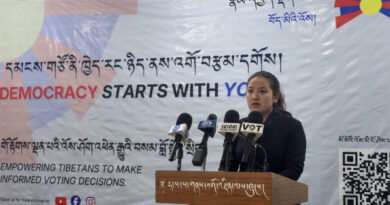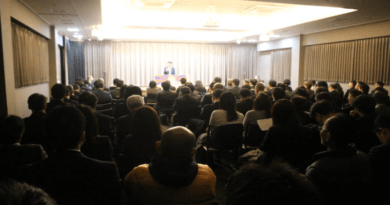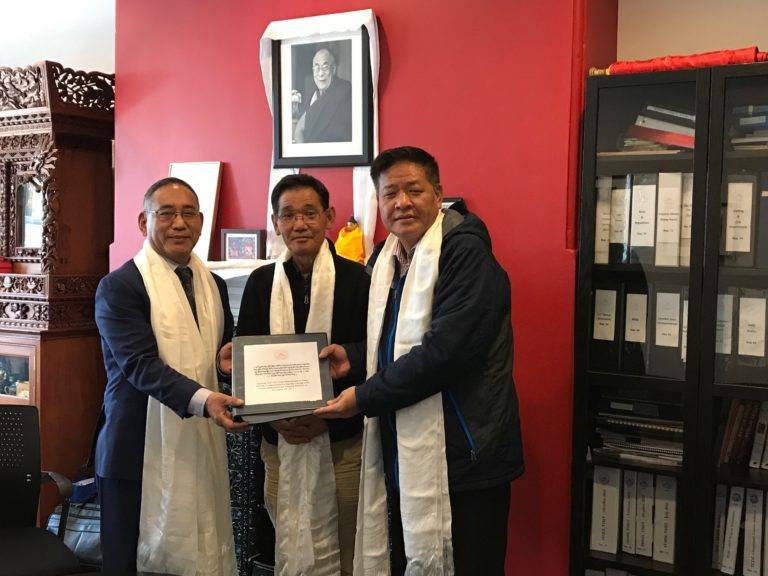Now, A Decisive Turn for Tibet’s Future
By: N.S.Venkataraman

Discerning observers around the world are increasingly concerned that “might is right” is becoming the prevailing principle in shaping relations between countries. There is a growing consensus that any country with expansionist greed and using oppressive methods and aggressive tactics to dominate other countries should not have the last laugh.
Dalai Lama’s Reincarnation:
In such circumstances, millions of people around the world who hold progressive views are pleased that His Holiness the Dalai Lama has finally asserted his position—that, according to Tibetan tradition, the decision regarding his reincarnation should be his own. He has rightly stated that this decision should not lie with the Chinese government.
In defiance of the Chinese government’s insistence that the selection of the next Dalai Lama in Tibet must be approved by them, His Holiness has made it clear that the institution of the Dalai Lama will continue, and that only the Gaden Phodrang Trust has the authority to recognise and anoint the next Dalai Lama.
A spokesperson for the Chinese government reacted sharply to His Holiness’s statement. This is only to be expected from China’s current leadership, given its continued use of coercive tactics to maintain a vice-like grip over occupied Tibet. It is ironic that the Communist government of China—controlled by self-professed atheists with no faith in religion—now seeks to appoint a religious leader. This speaks volumes about the opportunistic tactics of the Chinese authorities.
A Firm Stand on Tibet’s Future:
Perhaps this is the first time in several decades that His Holiness the Dalai Lama has taken such a firm and unambiguous stand. This move strongly signals that Tibetans will never bow to Chinese dictates and will continue to strive to liberate Tibet from Chinese aggression. They are committed to protecting the dignity, culture, and traditions of the Tibetan people, and to restoring Tibet’s former glory.
Silence of Other Countries:
Around seven decades ago, China entered and occupied Tibet, killing thousands of protesting Tibetans in the process. Though China has maintained control over Tibet for decades, this occupation remains illegitimate.
Unfortunately, most countries—including India—have virtually accepted China’s occupation of Tibet and continue to remain silent on China’s violent oppression of the Tibetan people.
Today, international relations are shaped more by self-interest, trade relationships, and economic benefits than by fairness or moral responsibility. There is no indication that this trend will reverse in the foreseeable future.
In this context, the assertive stand taken by His Holiness the Dalai Lama regarding his succession may merely be observed by other nations—most likely without any meaningful response.
It is encouraging that India has recently stated that only the current Dalai Lama and the conventions established by him can determine his successor. While this is a welcome development, it is too little and too late. In the past, India made a strategic error by implicitly approving China’s occupation of Tibet. And even now, India is unlikely to go beyond this recent statement, as its relationship with China is, like that of most countries, guided primarily by economic considerations—especially given China’s status as a superpower and its dominance in global production across many sectors.
A Boost of Confidence for Tibetans:
Nevertheless, the firm assertion by His Holiness the Dalai Lama has instilled renewed confidence and faith in Tibetans and their supporters around the world. It represents a decisive moment in Tibet’s future.
There are reportedly around 100,000 Tibetans in India, with many thousands more living abroad—most of whom have now acquired citizenship in their respective countries. However, in their hearts, wherever they may be and regardless of their current nationality, Tibetans must pledge themselves to preserving Tibetan culture, traditions, and values, as guided by His Holiness.
Tibetans around the world should yearn for an independent Tibet restored to its pristine and traditional glory, and must not rest until this objective is realised. They must demonstrate that might does not make right—a principle that can only be proven through a sustained, principled movement founded on justice and human welfare. This should be the guiding spirit for Tibetans globally.
His Holiness the Dalai Lama has shown the way. With his recent statement, he has stirred the conscience of the global community—who should now come forward to support Tibet’s cause and work to undo the injustice inflicted upon Tibet by China.
Tibetans across the world must take the initiative to mobilise global opinion, encouraging the international community to heed His Holiness’s clarion call to uphold Tibet’s traditional value system and its independence.
Venkataraman is a trustee with the “Nandini Voice for the Deprived,” a not-for-profit organisation that aims to highlight the problems of downtrodden and deprived people and supports their cause. To promote probity and ethical values in private and public life and to deliberate on socio-economic issues dispassionately and objectively.
The Views expressed in this article are those of the author and should not be attributed to Tibet Express.






